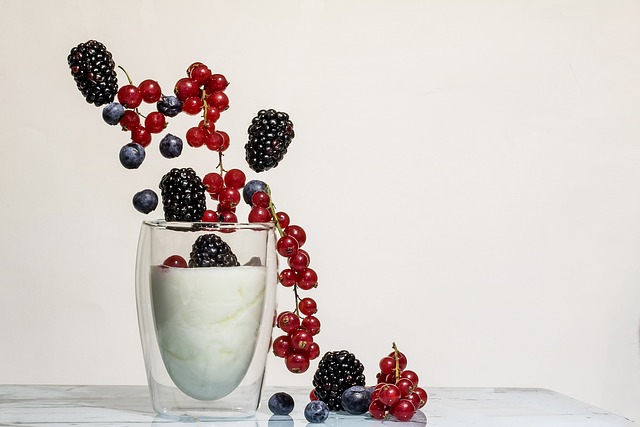The Real Deal with Yogurt: How to Choose the Best Probiotic Option on the Market
Probiotics have gained significant attention in recent years for their potential health benefits. These live bacteria or yeasts, often found in fermented foods, are believed to promote a healthy gut and improve digestion. Yogurt, in particular, is a popular choice for obtaining probiotics. However, with so many options available on the market, how do you choose the best probiotic yogurt?
Look for Live and Active Cultures
When selecting probiotic yogurt, it’s essential to check for the presence of live and active cultures. Probiotics are only effective if the beneficial bacteria are alive and able to colonize your gut. Look for labels that indicate the yogurt contains live strains of bacteria such as Lactobacillus or Bifidobacterium. The more specific the strain is mentioned, the better.
Some common strains found in probiotic yogurts include Lactobacillus acidophilus, Bifidobacterium lactis, and Streptococcus thermophilus. These strains have been extensively researched and have shown positive effects on gut health.
Avoid Excessive Sugar Content
While yogurt can be a tasty treat, it’s important to be mindful of the sugar content. Some yogurts marketed as probiotic options may contain added sugars, which can have negative effects on your health. Excessive sugar consumption can lead to weight gain, increased risk of developing chronic diseases, and disrupt the balance of bacteria in your gut.
Always read the nutrition label and ingredients list to identify the amount of added sugars. Choose yogurt with little to no added sugars or opt for natural sweeteners like honey or fruit instead.
Diversity of Strains
The more diverse the strains of probiotics in your yogurt, the better. Different strains offer various benefits to your gut health. Look for yogurt brands that include multiple strains of bacteria to ensure you’re getting a wide array of helpful microorganisms.
A diverse range of probiotic strains can help improve digestion, strengthen the immune system, and alleviate gastrointestinal issues. Some yogurts may even contain clinically researched strains that target specific health concerns. For example, certain strains have been shown to help with lactose digestion or relieve symptoms of irritable bowel syndrome.
Choose Organic and Hormone-Free
Opting for organic and hormone-free probiotic yogurt is beneficial for both your health and the environment. Organic yogurts are made from milk obtained from cows that have been raised without the use of pesticides, antibiotics, or synthetic hormones. Choosing organic ensures you’re consuming a product free from potentially harmful chemicals.
Furthermore, hormone-free yogurts are preferable as they do not contain added hormones like growth hormone (rBGH/rBST). These hormones, when consumed in dairy products, may disrupt the delicate hormonal balance in our bodies.
Consider Non-Dairy Options
If you’re lactose intolerant, have a dairy allergy, or follow a vegan diet, don’t worry! There are plenty of non-dairy options available that still provide beneficial probiotics. Look for yogurts made from coconut, almond, soy, or other plant-based milks. Non-dairy yogurts often contain a variety of live and active cultures similar to their dairy counterparts.
Just like with dairy-based yogurts, be sure to check for added sugars and select non-dairy yogurts with minimal processing and organic ingredients.
Conclusion
Probiotic yogurt can be an excellent addition to your diet, promoting optimal gut health and digestion. When choosing the best option on the market, prioritize yogurts with live and active cultures, minimal sugar content, a variety of strains, organic and hormone-free ingredients, and consider non-dairy alternatives if necessary.
Remember, everyone’s body is unique, so it may take some experimentation to find the best probiotic yogurt that suits your needs. Listen to your body and pay attention to any potential digestive improvements or discomfort after consuming different brands or strains. In the end, finding







